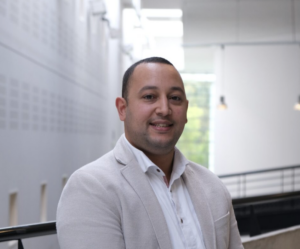Master
Master in Management Science
Le Master en Management Science est un master qui convient particulièrement bien aux étudiants ayant réalisé un bachelier en sciences économiques. Il se veut multidisciplinaire et allie aussi bien cours quantitatifs que qualitatifs. Il est plus axé sur la gestion que sur les sciences économiques en tant que tel.
Avec 100% des cours du programme donnés en Anglais, le Master en Management Science est plus précisément un master où:
la première année est faite de deux composantes :
1) Un tronc commun obligatoire de 45 ECTS fait de cours de gestion avancés (comptabilité, finance, stratégie, marketing, économie, comportement organisationnel et leadership, droit, data management & business analytics, méthodes de recherche en gestion)
2) Une option de 15 ECTS à choisir entre 3 programmes différents :
– Cross-border entrepreneurship & innovation à Une option axée sur le monde de l’entrepreneuriat, les startups et l’innovation.
– Global businesses à Une option axée sur les grosses entreprises internationales et leur marketing/communication, chaines d’approvisionnement (= supply chains).
– Managing people & organizations à Une option axée sur la gestion des ressources humaines.
La deuxième année est faite des composantes suivantes :
1) Un Erasmus dans l’une des nombreuses universités partenaires que compte la Faculté (échange dans une autre université à l’étranger durant un quadrimestre) ou un stage crédité dans un cadre international (ex : une entreprise qui a des opérations à l’étranger) équivalent à 25 ECTS et pouvant se faire soit au Q1 soit au Q2.
2) Deux cours en « leadership skills » (10 ECTS) dont Project Management qui est obligatoire (= Gestion de Projet) et un cours à choisir parmi les suivants : négociation, coaching, communication ou une langue au choix.
3) Un projet de terrain plus communément appelé « Field Project » (5 ECTS) où vous serez amenés à appliquer vos connaissances théoriques dans un cas pratique concret et réel (à savoir, pour une vraie entreprise) dans le secteur de votre choix (ex : IT governance, RH, entrepreneuriat, gestion publique, stratégie, etc.). Il est à faire au Q1 ou au Q2 en fonction de quand vous faites votre Erasmus ou stage et est obligatoire pour tous ceux ayant fait le choix de ne pas faire de stage.
4) Un mémoire (= Master Thesis) (20 ECTS) à rendre pour la fin du Q2.
Note : il est possible de faire et un Erasmus ET un stage crédité. Dans ce cas, le Master est rallongé d’un quadrimestre et se fait dès lors en 2 ans et demi.
Débouchés
Avec un Master en Management Science, les débouchés sont très larges et de nombreuses portes sont ouvertes, notamment dans les domaines suivants :
- Consultance (conseil en stratégie)
- Marketing
- Sales
- Finance
- Audit
- Entrepreneuriat
- ONG / Gestion publique
Les Boxes
One of the key value at Solvay is mutual assistance !
Boxes are students’ initiative aimed to help students. The goal is to be collaborative : you will find synthesis, exercices’ answers and previous exams.
Délégués
La mission principale des délégué(e)s est la défense des intérêts estudiantins au sein des instances facultaires. La représentation étudiante à travers le Bureau Etudiant Solvay possède un pouvoir décisionnel à travers ses 22,5 % de pouvoir de vote. Ils assurent également une bonne communication entre les étudiants. De plus, ils mettent en place des initiatives tels que les guides d’année et les boxes mais aussi le soirées d’audit pendant lesquelles tu pourras découvrir tes camarades dans une ambiance plus décontractée.


